Andy Murray: Davis Cup glory 'will not define legacy'
- Published
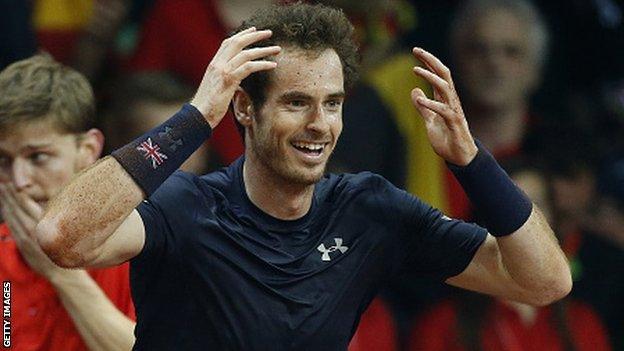
Andy Murray will end the year as number two in the world rankings
Andy Murray didn't need the Davis Cup on his sideboard - or in his wheelbarrow - to put him in the pantheon of Britain's sporting greats.
He achieved that a long time ago, not by beating David Goffin in Ghent but by beating Novak Djovokic at Flushing Meadows in 2012 and again at Wimbledon in 2013.
Sunday was one of the most emotional days Murray has had in tennis, but it needs to be put in its proper place in the pecking order of his achievements.
Wimbledon and the US Open are arguably unrivalled at the top, then there's the Olympic gold and after that the Davis Cup.
Having ended a 76-year wait for a British male to win the US Open, a 77-year wait for a Briton to win Wimbledon, a 79-year wait for Britain to win the Davis Cup and a 104-year wait for somebody from these parts to win an Olympic tennis gold, Murray is rapidly constructing enough memories for a one-man museum.
There was a vast feel-good factor about what happened in Belgium. Even those of us watching on television could almost reach out and touch the atmosphere.
Almost as striking as the tennis itself was the emotional impact it had on Murray. Winning for your nation, with your brother and your mates by your side, lent the thing an unmistakable power.
Route to Davis Cup victory | |
|---|---|
Round | Result |
First round | Beat United States 3-2 at home (indoors) |
Quarter-finals | Beat France 3-1 at home (grass) |
Semi-finals | Beat Australia 3-2 at home (indoors) |
Final | Beat Belgium 3-1 away from home (clay) |
'Not the World Cup of tennis'
Something else needs to be said, though. The Davis Cup is a peculiar animal. This past week it's been regularly described as the World Cup of tennis. It's clearly nothing of the kind.
For the elite of the game it's fifth on the list of events they would like to win every year - sometimes not even fifth during an Olympic year.
In golf terms, it's the Players Championship, the so-called fifth major. But even that doesn't quite cover it. Sometimes the elite give it a miss. All the world's leading golfers will turn up for the Players, but they don't for the Davis Cup. Not always.
That's not to denigrate Sunday's victory, but it's an attempt to put it into context - while whistling in the wind you suspect.
The Davis Cup World Group contained the top 16 nations. Spain have three players in the top 20 but they're not in the World Group because their marquee names don't play in the Davis Cup often enough. That's a weakness of the championship.
The Czech Republic, winners in 2012 and 2013, went out to Australia this year. A large part of the reason why the Czechs won back-to-back Davis Cups was because their star man, the current world number six, Tomas Berdych, was present and firing. Berdych didn't play in the 3-2 loss to Australia.
Highlights: Andy Murray wins Davis Cup for GB
Switzerland were knocked out by Belgium 3-2. Roger Federer, the 17-time Grand Slam winner, and world number four Stan Wawrinka, weren't present for the Swiss.
Without world number one Djokovic, Serbia got trounced 4-1 by Argentina in the quarter-final, while France did without Wimbledon semi-finalist Richard Gasquet in their tussle with Britain at Queens. At the same stage of the championship, Belgium beat Canada, who were without their top man Milos Raonic.
The Davis Cup is different when the big boys make themselves available.
In 2014, Switzerland won because Federer and Wawrinka played. In 2013, the Czechs were pushed to the wire by the Serbs because Berdych and Djokovic both engaged with it and were immense. In 2011, Spain won because Nadal played and won every match and because he had David Ferrer, Fernando Verdasco and Feliciano Lopez for company.
The issue with it is that it happens every year, so if you miss it once you don't have long to wait for it to come around again.
The Ryder Cup in golf is every two years, and all eligible players bust a gut to play in it. A football World Cup is every four years and you wouldn't find Lionel Messi, Cristiano Ronaldo or Neymar taking a sabbatical while it's on.
The Davis Cup exists in a category all by itself. It's big enough to provoke unforgettable scenes on court, and off, in its aftermath. But the fact remains that its status as a world-class event of global sporting significance is too often compromised by the roll call of elite players who, in the vernacular, can't fit it into their schedule.
What winners do
Murray has ticked the box. And that's important to his story.
There's the Opens in Australia and France left and if they're captured then that's the full set and everybody else in the British sporting pantheon can step aside and let the big man through.
Murray is not just a great with a racquet in his hand, he's great with a microphone, too.
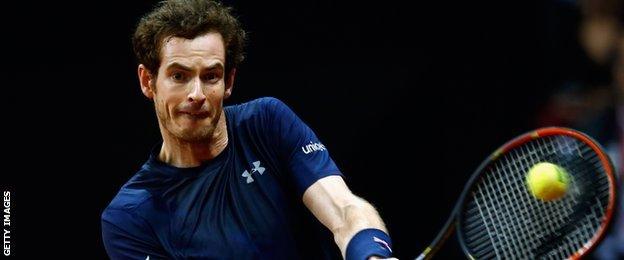
Murray won all 11 of the Davis Cup rubbers he played in this year
When, on Monday, he refused to bask in the glory of Ghent and instead lacerated the Lawn Tennis Association for its failure in developing young talent, the temptation was to rise up and applaud him all over again.
This is what winners do. They have a brief moment of elation and then they knuckle down and prepare for the next challenge.
Powerful words
Murray spoke with a mixture of bewilderment and disgust at what he saw - or didn't see - at the National Training Centre in Roehampton for two days in October.
There was nobody there, he said. Courts empty. No buzz and not a scintilla of a suggestion that the LTA are building on his success and the success of his brother, Jamie.
"It almost feels like you waste your time because nothing ever gets done," he said. He took photos of this tennis white elephant, a £40m echo chamber.
Murray knows what passion and hard work looks like. He knows what inspiration is all about. He has seen it in his mother, Judy, since he was in short pants and he still sees it now.
And, in the desire to drive tennis forward, maybe it's the only place he sees it. Judy travels the country with her van and her equipment and her huge ambition to bring tennis to the next generation.
From club to club, from school to school, all weathers and all areas, all months of the year. Knowing what his mother does, and what those at the LTA don't do, was surely on Murray's mind when he set about them on Monday.
In refusing to go with the flow and enjoy the afterglow of Ghent, Murray showed that his deft touch doesn't begin and end with the lines on the court. In a sense, his words were more powerful than any serve and more important than that sumptuous lob against Goffin.
The decision-makers in tennis love watching him. Some would say it's high-time they started listening to him.
- Published1 December 2015
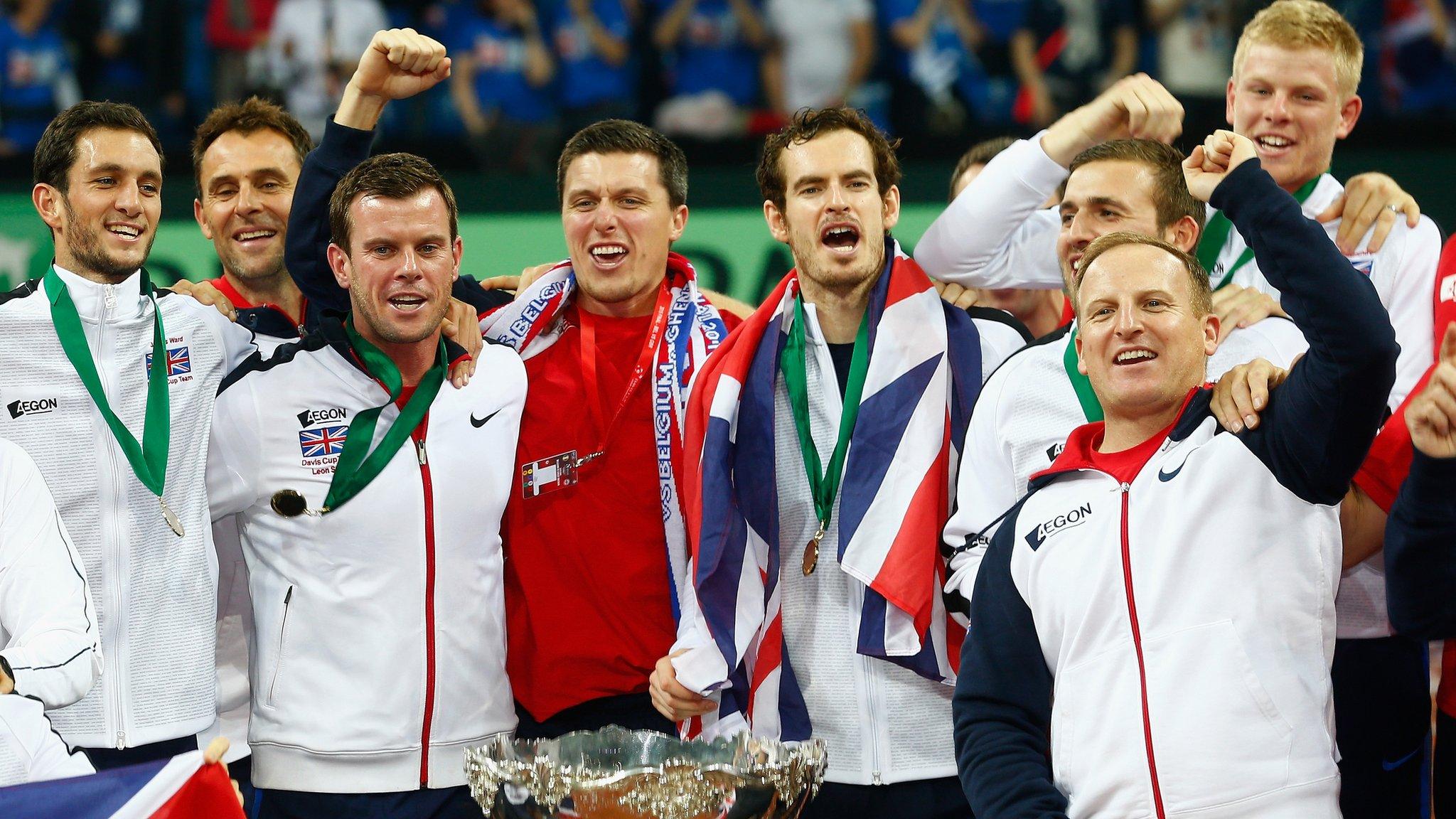
- Published1 December 2015

- Published1 December 2015
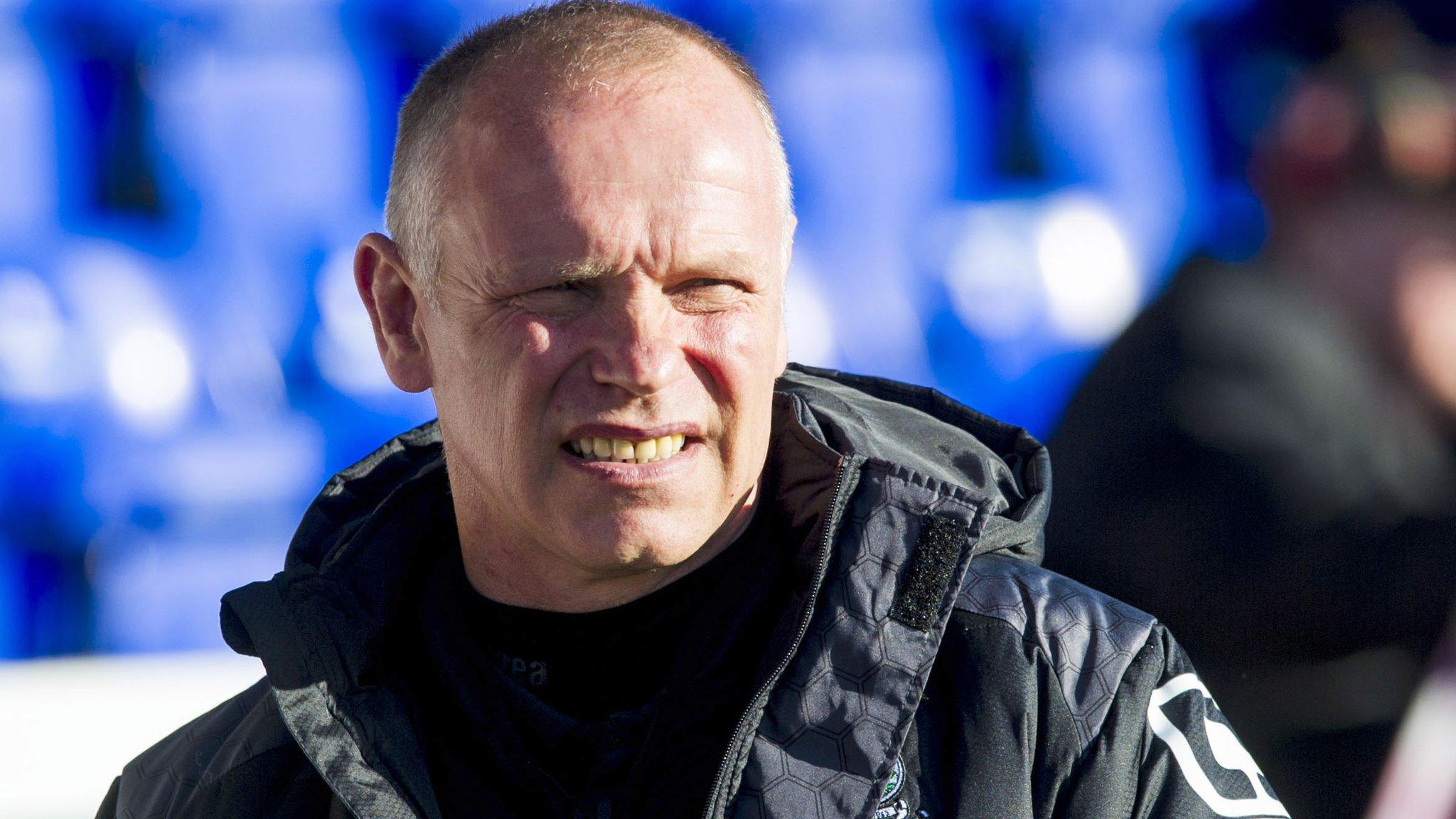
- Published17 June 2019
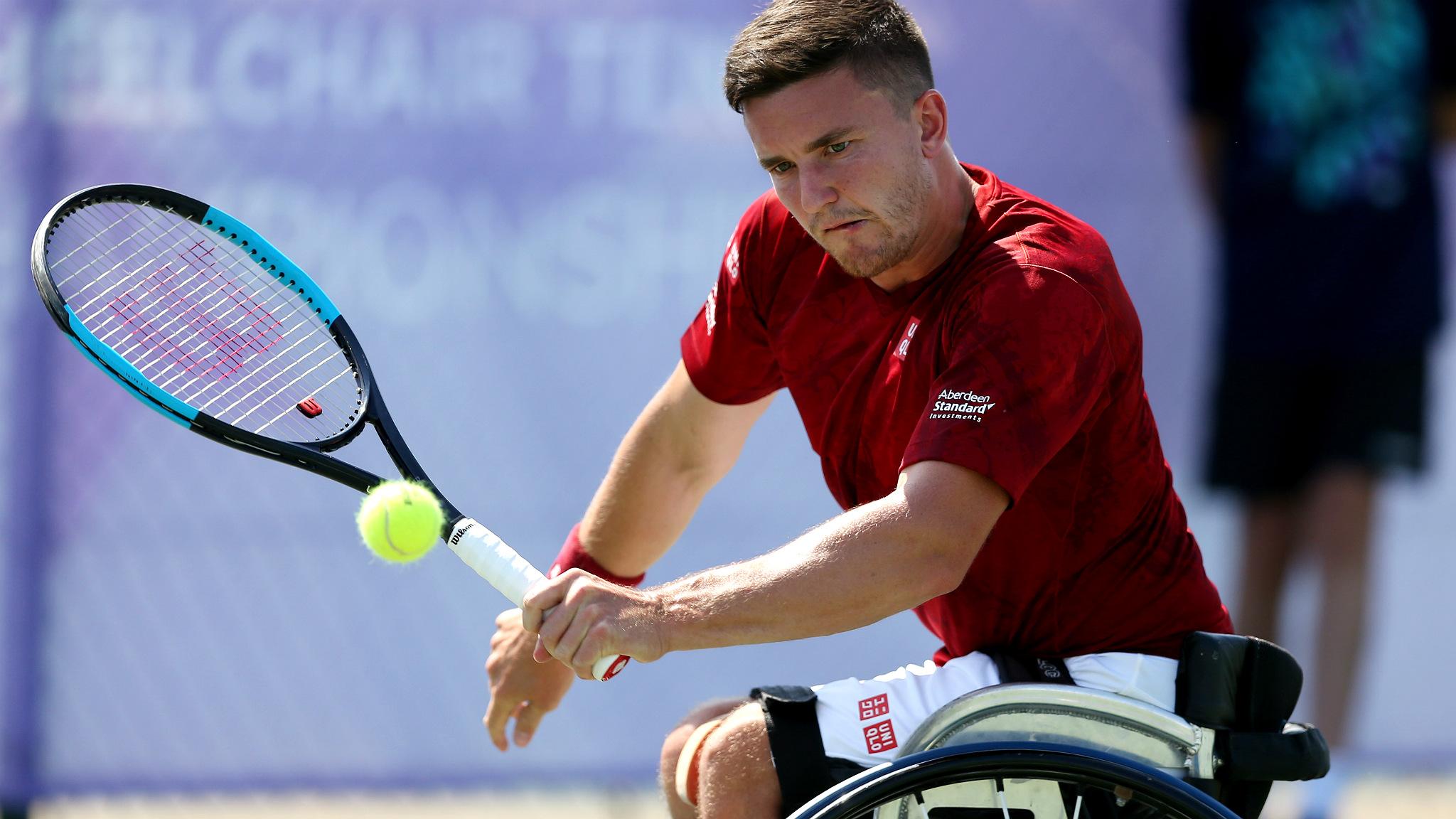
- Published8 November 2016
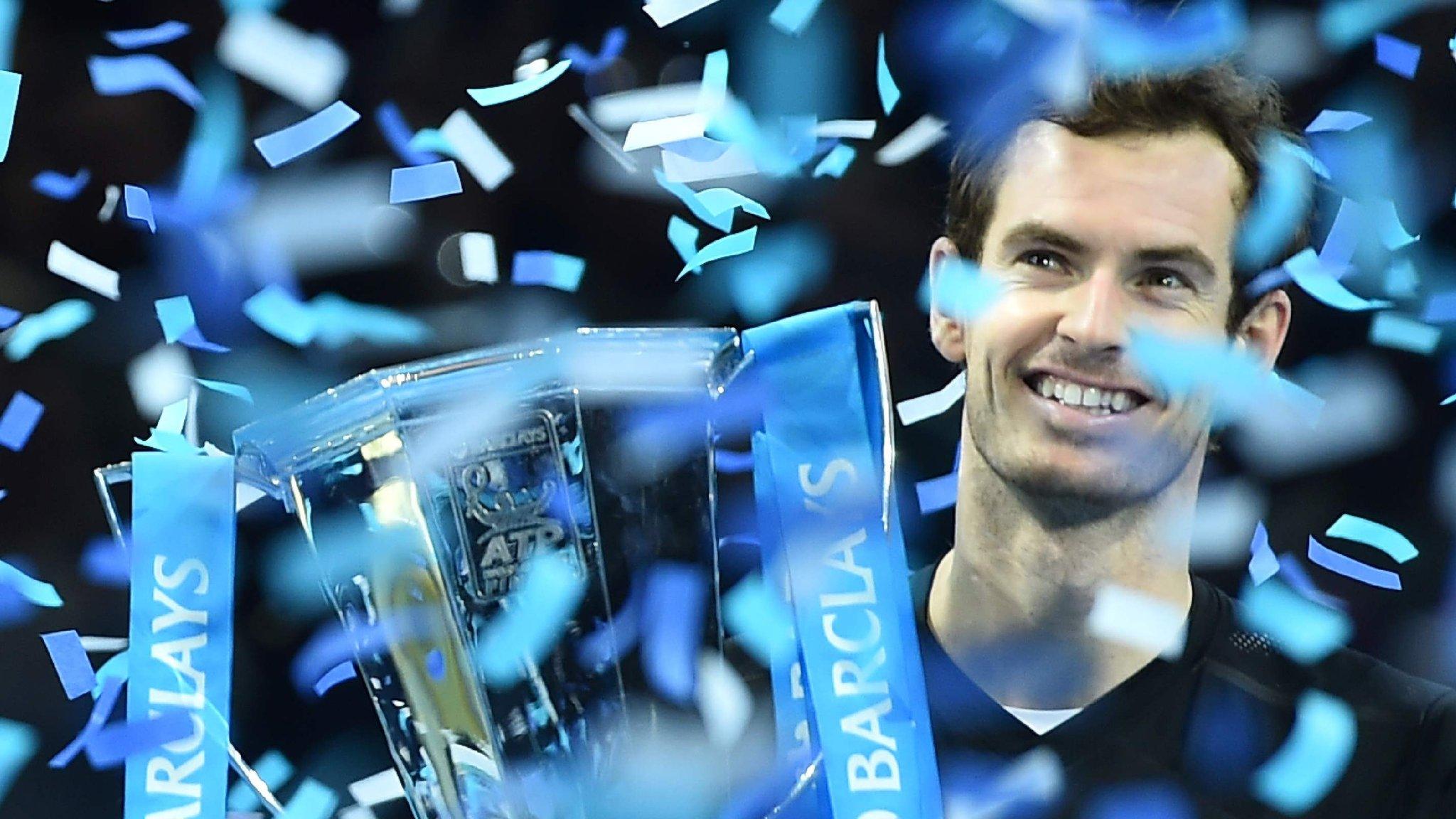
- Published19 July 2016
